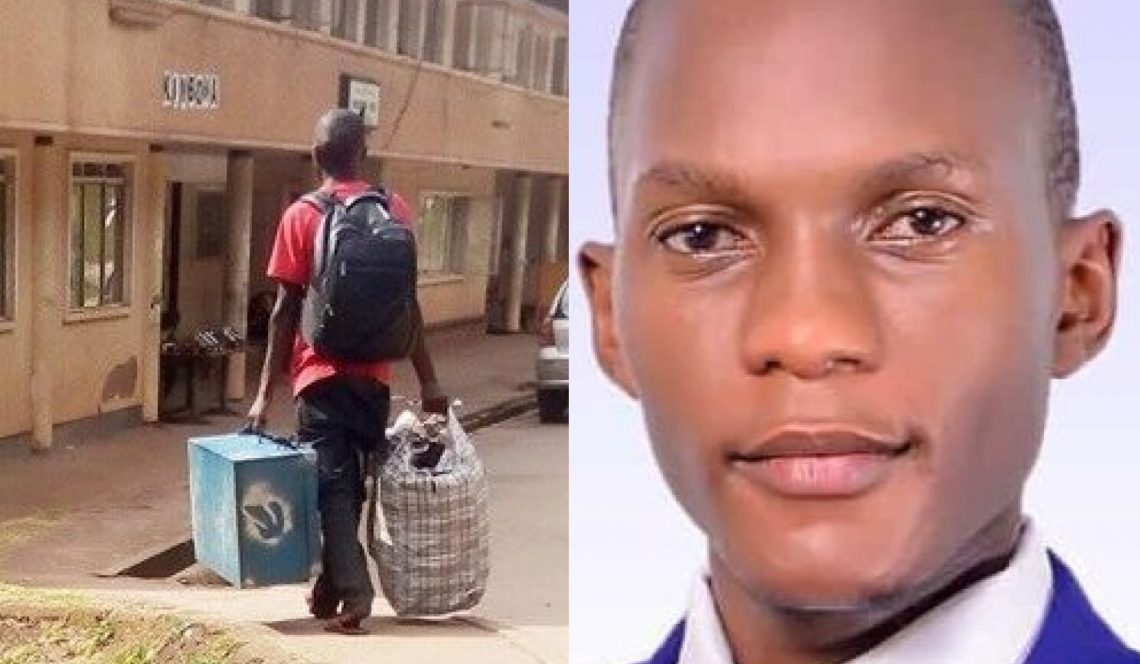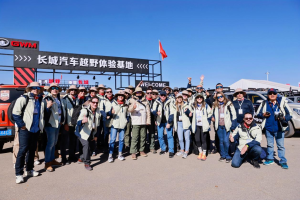In 2019, Campus Bee ran a story of a Makerere University fresher who reported to campus with a metallic suitcase and an ‘osoufia’ bag. This story which went viral, was a blessing in disguise for the then fresher who subsequently received numerous financial and scholastic support including a full study scholarship from concerned citizens and well-wishers.
Four years down the road, this student named Henry Ssuubi Kiyimba has reached the apex of his undergrad academic programme in Mechanical Engineering, and as standard, he embarked on a one-of-a-kind final year project.

Titled “Development of Liquid Pyrolytic Fuel from Waste Plastics”, Ssuubi’s project looks to generate fuel out of plastics (simply put) which is safe for the environment with less emission.
When did you kick start with the final year project?
The idea of this project is not new but I took it up as my final year project, which started in first semester of Fourth Year, around November 2022.
What’s the project about and what inspired it?
The prevailing conditions in the environment, we have a lot of plastic waste. Simply put, the waste recycling happens for a certain type of plastic called PETE (polyethylene terephthalate) the chemical name for polyester, which is common for soft drink bottles such a coca cola, mineral water etc. Those are the target because they are readily recyclable. The research is looking for possibility of recycling different plastic waste to see which one can give off a better quality of fuel which people can actually use.
Do you plan to take it to a large scale after campus? If yes, how do you intend to do it?
Yes, I have to because it is a very good project. If you read a lot about the existing research in line with my research, for example a team from Kayunga who carried out experiments close to this.
What are you doing different from the other researchers on plastic waste recycling?
When I went to Kayunga, I found out that the innovators do it traditionally, they use firewood (fire) and they’re able to get fuel as byproduct but they don’t monitor anything like the conditions they’re using in their production. So I’m able to identify the variables I’m going to use in my experiments, i.e in pyrolysis you can choose to use temperature as one of the variables, the heating rate and the holding time at a certain temperature. You can easily find the optimum conditions for the best quality you can get out of a certain type of plastic.
Are there any people you dedicate this final year project to?
I dedicate the project to my sponsor particularly because he made the course (Bachelor of Mechanical Engineering) possible for me.
Are you facing any challenges in this project? If yes, kindly describe them.
A lot of people have done research in this same line, so when I come in as a fresh researcher I want to identify the gaps in what people are doing for example, in Kayunga, one of the beneficiaries of the fuel who is a boda boda said the fuel is intense it can take you a longer distance but their tanks were rusting. That means that there was a component in the fuel which was causing their tanks to rust. So when you carry out such experiments, the end of each condition you use, you can be able to do a number of tests. So when you perform these tests, you’re able to determine the chemical composition (properties) then you compare with the conventional fuel currently being used on the market. So you have to compare the two until you find something which is close to the conventional fuel that is being used, and that requires time. My project focuses on recycling and re-use of redundant plastics in the environment, that’s the main focus. There are concerns about the emissions that can occur in such a project, so it’s important to put measures to control the adverse effects in any event.
Anticipated to combat waste in the country, Ssuubi’s research meets the United Nation’s Sustainable Development Goal on Climate change which is ascribed to irresponsible dumping of plastic waste.
Indeed, like they say, every setback is a set up for your comeback and this just proves it.




